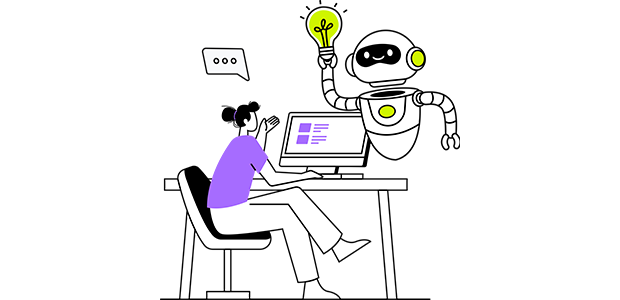
Spiritual algorithms: why purpose, not metrics, drives sustainable hypergrowth
In today’s technology landscape, the dominant narrative is one of relentless growth – an arms race of downloads, funding rounds, and user acquisition. Yet, as the world’s fastest-growing AI applications emerge from unexpected corners, a different story is unfolding: purpose-driven technology, shaped by spiritual and ethical wisdom, is proving more resilient and impactful than conventional, metrics-obsessed approaches.
Integrating theological wisdom with AI
The intersection of faith and AI is often misunderstood. Some critics fear that integrating spiritual traditions with advanced technology risks diluting both, or worse, creating ethical hazards. But a growing body of research and real-world practice suggests the opposite: when AI development is informed by theological wisdom – values such as compassion, humility, and justice – systems become more nuanced, ethically grounded, and able to address genuine human needs.
Spiritual traditions have spent millennia grappling with questions of meaning, suffering, and hope. These are not just philosophical curiosities; they are the very questions that surface when people turn to technology for support in moments of crisis. By drawing on this deep well of wisdom, AI systems can move beyond transactional interactions, offering guidance and support that resonates on a human level. In practice, this means designing algorithms that do not simply optimise for engagement or efficiency, but for the flourishing of the individual – an approach that is both ethically robust and commercially sustainable.
The paradox of constraint: boundaries as catalysts
There is a persistent myth in tech that constraints – especially ethical or spiritual boundaries-impede innovation. The reality is often the reverse. When a company is built around a clear set of values, those boundaries become catalysts for creativity and focus. The paradox of constraint is that it forces teams to prioritise what truly matters, to innovate within limits, and to build systems that are not just scalable, but also sustainable and trustworthy.
Ethical and spiritual boundaries require founders and technologists to ask difficult questions: does this product serve a higher purpose? Are we promoting human dignity and agency? These constraints, far from stifling progress, actually accelerate meaningful innovation by ensuring that technology remains aligned with the deeper needs of its users. In a world increasingly wary of “move fast and break things,” this approach offers a path to growth that is both responsible and resilient.
Spiritual algorithms: a new framework
The emerging concept of “spiritual algorithms” offers a fresh lens for evaluating technological progress. Rather than measuring success solely by conventional metrics – downloads, revenue, or engagement-this framework asks whether technology promotes compassion, justice, and human flourishing. It challenges founders and engineers to consider not just what their systems can do, but what they should do.
A spiritually-informed approach to AI is inherently interdisciplinary, drawing on insights from theology, philosophy, and the social sciences as well as computer science. This broad perspective encourages ongoing ethical reflection, transparency, and dialogue with diverse stakeholders, including faith communities. The result is technology that is not only more inclusive and equitable, but also more adaptable to the complexities of real human lives.
Faithtech: a counterintuitive testing ground
Faithtech may seem like a niche, but it is rapidly becoming a proving ground for some of the most pressing questions in AI ethics and alignment. When AI is used to help people navigate questions of meaning, morality, and suffering, the stakes are uniquely high. Here, the shortcomings of purely metrics – driven approaches are laid bare – and the value of integrating spiritual wisdom becomes clear.
This sector demonstrates that technology can serve as a bridge rather than a barrier: making ancient wisdom accessible, fostering authentic community, and supporting users in moments of vulnerability. The lessons learned in faith-tech – about trust, responsibility, and the limits of automation-are increasingly relevant for the broader industry as AI becomes more deeply embedded in daily life.
The case for purpose-driven hypergrowth
The experience of building a purpose-driven company from outside the traditional tech epicentres has reinforced a simple truth: sustainable hypergrowth is not the product of unbridled ambition, but of deep alignment between mission and product. When teams are united by a higher purpose, growth becomes organic and resilient, fuelled by authentic user engagement rather than fleeting trends or aggressive marketing.
The future of technology will not be defined by those who chase growth at all costs, but by those who build with intention, humility, and a commitment to serving the deeper needs of humanity. Purpose is not a constraint – it is the ultimate competitive advantage.
For entrepreneurs and innovators, the message is clear: the path to enduring impact lies not in outpacing the competition, but in out-serving the needs of the world. In the age of algorithms, it is purpose – and the wisdom that comes with it – that will set the most enduring companies apart.
For more startup news, check out the other articles on the website, and subscribe to the magazine for free. Listen to The Cereal Entrepreneur podcast for more interviews with entrepreneurs and big-hitters in the startup ecosystem.

